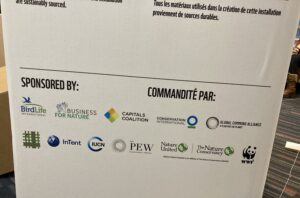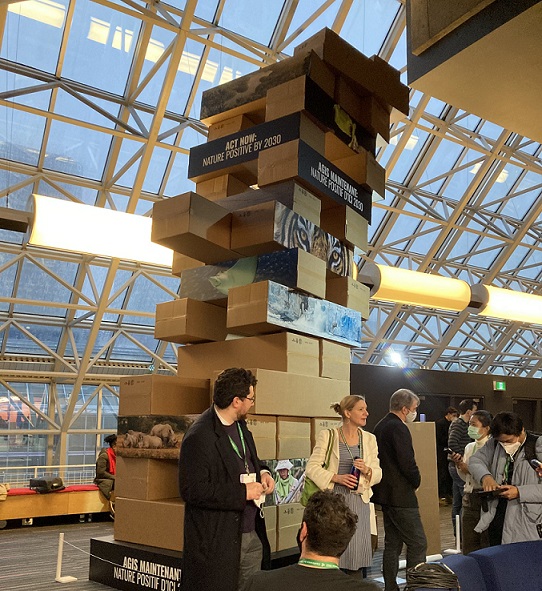The installation of a 20 feet tall jenga tower in the main pavilion at the Montreal Convention on Biological Diversity signifies risk of ecosystem collapse if an ambitious global biodiversity plan is not agreed at COP15 but is also a reminder that the event is sponsored by various corporations and associations.

Jenga tower sponsors
This installation, made of recycled cardboard boxes, resembles the complex web of life and the risk we all face if we continue with a business-as-usual approach to our relationship with nature. Each brick nudged out of place represents the precarious position we put our planet in, with each species lost, ecosystem degraded and livelihood ruined because of human-caused damage to biodiversity.
The jenga tower has been installed by the Nature Positive pavilion*, and highlights the call from more than 350 civil society organisations – representing humanitarian, development and conservation organisations; faith groups; indigenous peoples; business coalitions; artists; youth; and more – for governments to strengthen the draft global biodiversity framework to secure a nature-positive world by 2030, in support of climate action and the SDGs.
At the convention big business is recognised as one of the key drivers of the biodiversity crisis, but many of these corporations claim they are part of the solution and have a prominent seat at the negotiation table. According to various association and group they infiltrate UN processes to make sure their interests are defended and that any “solutions” don’t harm their profits.






